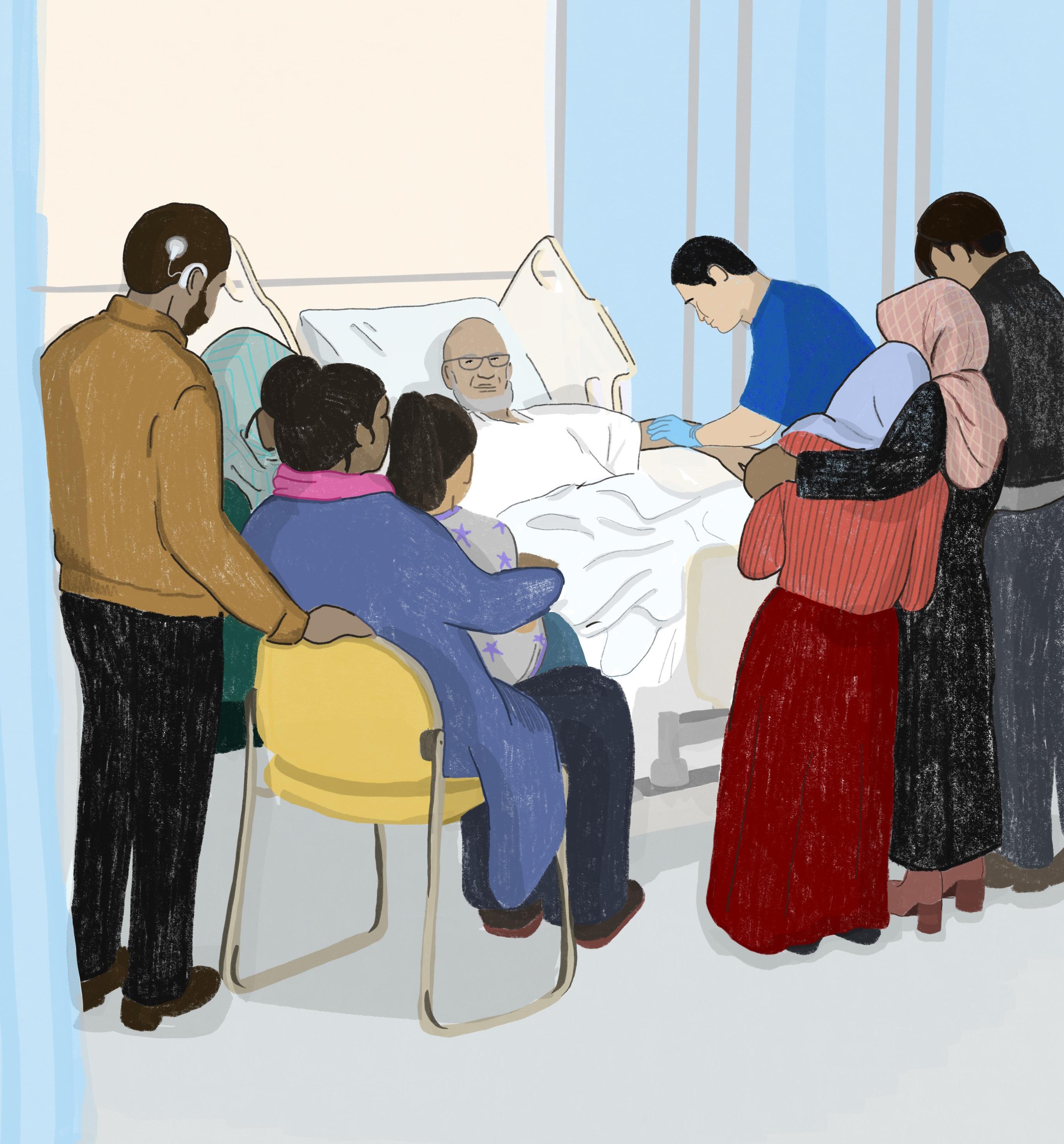
3 minute read
Collecting at end of life, or from a seriously ill person
Collection staff
Advertisement
Each experience is different for those at end of life or for seriously ill people. They may need varying levels of care and support, and we need to be flexible to adapt to their needs when performing procedures. Here are several things we must do:
• Introduce ourselves to the person as well as any family, friends or carers that are with them • Avoid giving advice to the person or family about their treatment. While people might ask for advice about their treatment, providing it is outside our scope of practice and is up to the consumer to talk with their treating clinician • If an Aboriginal or Torres Strait Islander patient is close to death, it is important that they do not die alone. Family presence is culturally important
What helps
Acknowledging people’s grief and fear, without trying to provide counselling. This grief and fear is often more than the person you’re providing care to but with families, friends, carers.
Treating people with care and empathy. Most people are aware of how sick they are, treat them as you would others and with compassion.
Practice your own self-care. This can be a very difficult time for our Pathology staff. It is critical that you practice your own self-care when surrounded by these scenarios.
Respecting the person’s cultural beliefs, including the
presence and support of family at end of life (e.g., not asking the family to leave the room, which may affect the person’s safety).
Being very considered in conversation. Don’t ask questions like “are you having a good day?” or “looking forward to breakfast?”. Some of these questions may seem innocuous or even relevant in other health care scenarios – such as “why aren’t you eating?” or commenting on rapid weight loss. These can be expected signs of decline at end of life.
Being prepared to easily end the process. The patient should not have to experience pain or injury following a collection. The patient may also be unable to give a collection and that’s okay.
Being aware of the patient’s physical state. You may need to modify the procedure to suit their condition.
Staying up to date with the patient’s situation before
proceeding with the collection. Check with the medical team for any changes in the patient’s situation. When patients are seriously ill or at end of life, changes in their treatment plan can change very quickly including their choice to longer receive invasive treatments. We must ensure we are up to date with the latest changes.
What hinders
Giving unsolicited advice to families about their loved one’s treatment. This is out of our scope of practice and patients must speak to their clinician about treatment.
Involving yourself in people’s personal life. It is human to feel deep empathy for the person you’re collecting from, however it is important to maintain professional boundaries when providing care.
Asking inappropriate questions. This could be related to their health or their expected outcomes.
Don’t be demanding of someone in that situation. They are going through a difficult stage of life and could be in pain or tired so be patient and flexible in our approach. Using nicknames or pet names. It is key to not use names like ‘love’ and use the patient’s name. Remember to ask the patient their chosen name and/or pronouns.

